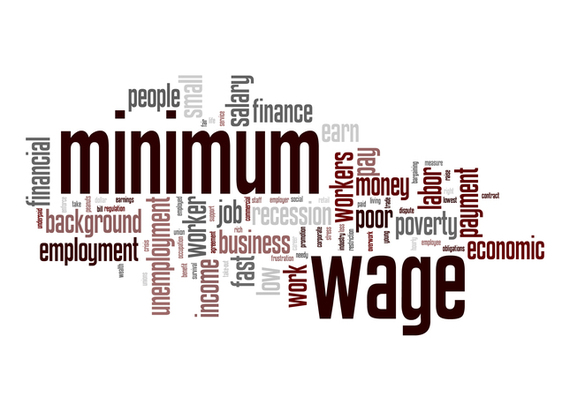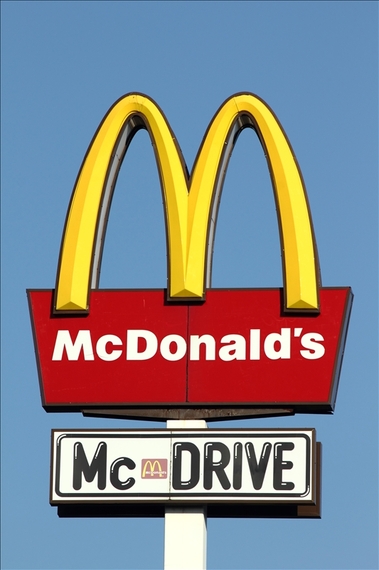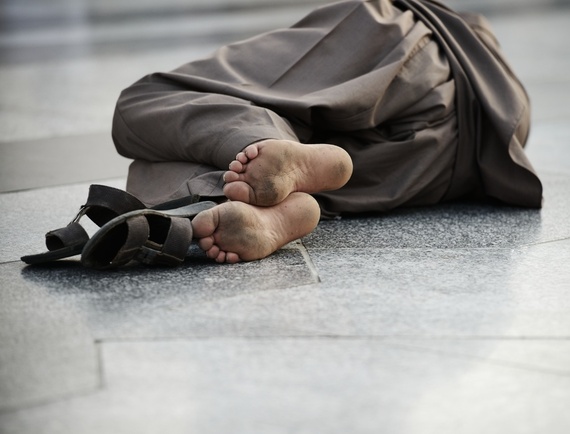Income inequality is a hot topic globally, and a focal point in the U.S. especially after the 2008 financial crisis. Most popular policy prescriptions revolve around the campaign friendly topic of redistributing wealth: tax the rich, and send the money to the poor. In the last several months, many cities, states, and Presidential contenders have seized upon another policy tool: raising the minimum wage. Los Angeles is moving the lowest wage a whopping 66 percent over the next five years, from $9 to over $15. New York made headlines last week as the governor introduced a plan to increase the wages of all fast food workers in the state over the coming few years by that same 66%. While increasing the minimum wage is perhaps noble in intention, it does little to dent the plight of the very poor or equalize income inequality. There may be some winners whose paychecks go up, but there are definitely losers -- and they could be the same people.
To understand the dilemma in this scenario, it's helpful to break down the winners and the losers in a situation where there is an across-the-board hike in wages (like a Federal increase or an L.A. citywide increase). Workers earning less than the minimum wage will have an urge to go throw a party in celebration with their new higher paycheck -- they are clear winners. As their incomes go up, they spend more, and their good fortune could in turn trickle down to others (what American puts 100% of their raises into a savings account?). As they eat out more and buy more stuff, their new habits could help the economy through increased consumer demand.
The losers are general consumers, the employers, and in some cases, also the employees. Faced with higher labor costs, an employer will try to pass on the cost increase to the customers, creating goods inflation and eating away at people's disposable incomes. The economy suffers, through decreased consumer demand in the face of higher prices. If the higher labor costs can't be fully passed on, they will eat into profits. If the business has a high margin, perhaps the impact is that the business owner doesn't make as much money; he/she is the loser. If margins are tight, perhaps the owner has to fire people and make existing ones work harder, or worse, close up shop. Here, some of the employees lose.
The real problem is that there just isn't conclusive research that can resoundingly endorse or decry the large or widespread minimum wage changes. For incremental changes, most argue that the net societal consequences will be small. For recent cases, the effects are likely to be large.
In Los Angeles' situation, an interesting study by U.C. Berkeley's Center on Wage and Employment Dynamics (click here) shows that a whopping 40% of L.A.'s labor force will be affected by the increase by 2019. It is obviously not true that forty percent of L.A.'s workforce is earning the minimum wage now. The planned wage increase is so extreme (wages will more than double) that it will ultimately rope in an enormous 40% of the work force, including many people earning well over the minimum wage currently. This is a radical change, in unchartered territory, that will have large consequences on businesses, workers, and the economy. Just about any item related to living in a home, eating food, and traveling to work, will be affected by significantly higher prices. And, this is in a state that already has some of the highest taxes on income, real estate and fuel.
In the case of New York's targeted fast food worker wage increase, the distortions and outcomes are more easily predictable. The government is defining a fast food establishment as a chain with more than 30 restaurants, or where food and drink is served at counters and customers pay first and eat after. Talk about capricious, ill-conceived government policy. Forgetting the unfairness angle altogether (why not gas stations? Grocery stores?), imagine the way businesses will react. If a business has less than 30 restaurants, there's a much higher hurdle to opening more, which means less future jobs due to less expansion. Furthermore, as labor gets more expensive, managers seek out labor alternatives. If I were an owner of one of these chains, I would immediately be looking at introducing iPads, conveyer belts, and automatic pay stations as substitutes for human workers. This technological investment undoubtedly looks attractive once labor costs double, so jobs will be eliminated. I also imagine many New York fast food restaurants will be converted to "eat-in" and "pay after you eat" establishments.
Perhaps society and the economy can live with the distortions, if these measures truly helped reduce poverty. However, the statistics show this to be an unlikely outcome. First, according to the Bureau of Labor Statistics, the group of hourly workers that earn less than the federal minimum wage comprised only 2.6% of all wage and salary workers. Even more remarkable, the Congressional Budget Office (here) estimates that a federal minimum wage increase to $10 would only move 900,000 people above the poverty line, of the 45 million people in the U.S. who are currently below it. These people are not all minimum wage earners - many are likely unemployed. It's going to take a lot more than raising the minimum wage to make a dent in 45 million people.
In sum, minimum wage hikes do entail income redistribution, but don't impact income inequality. Low wage workers will get a pay increase, but it is consumers who pay the obvious price to support this transfer, not the rich. While I am not a fan of higher taxes as the solution to all (or any) woes, the people below the poverty line would benefit much more in the short run by receiving direct checks, which have much less a distortionary impact on labor markets, inflation, and economic output. In the long run, these people need better access to quality education, job training and placement, healthcare, and a social safety net. (See the UN's Millenium Development Goals on Poverty Reduction, here)
Sara Zervos Personal Blog: here
Sara Zervos Twitter Feed: @SaraZervos



